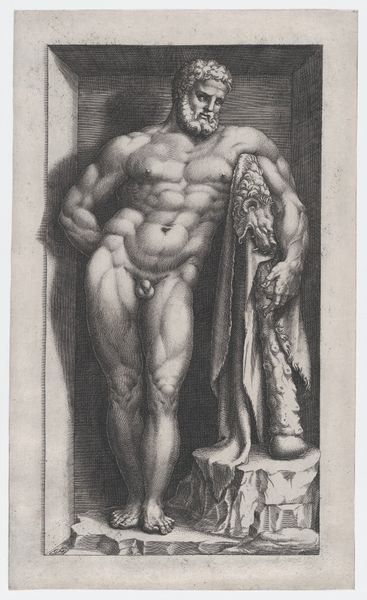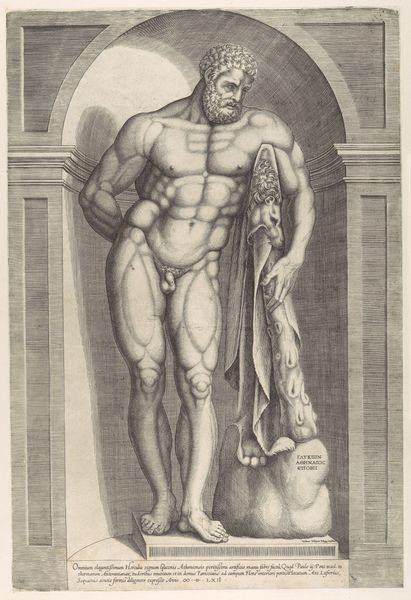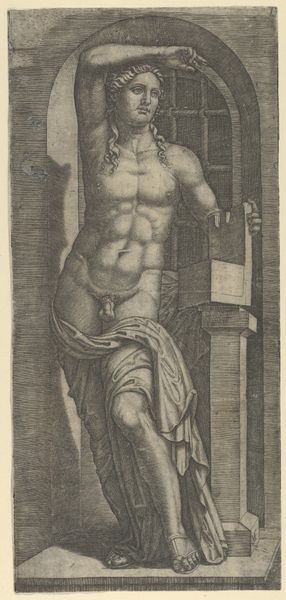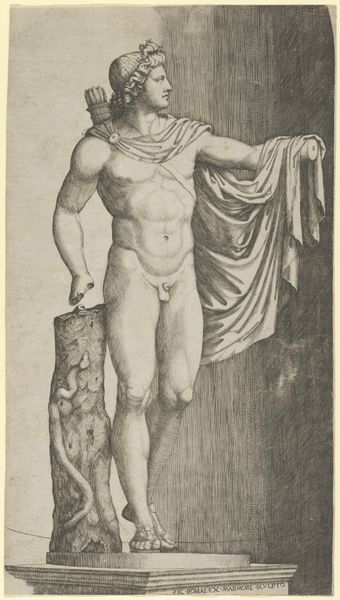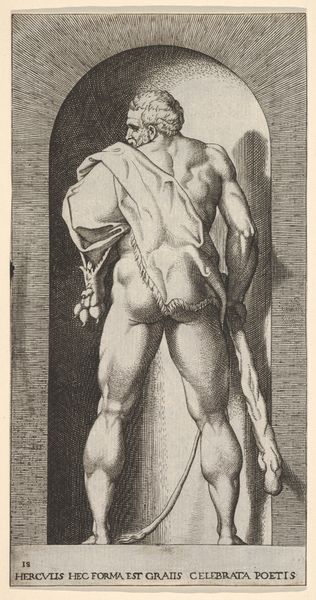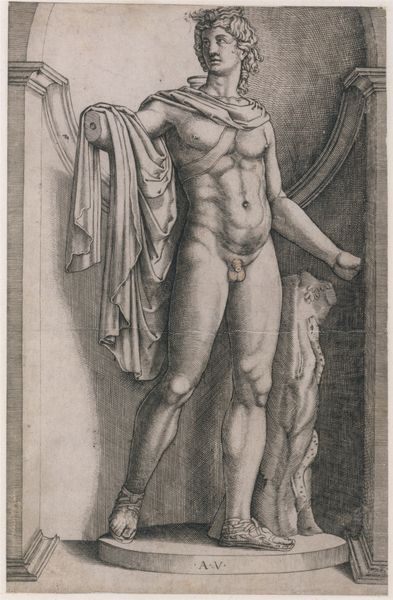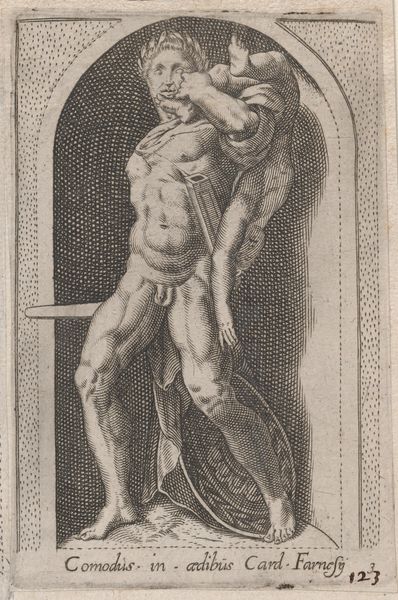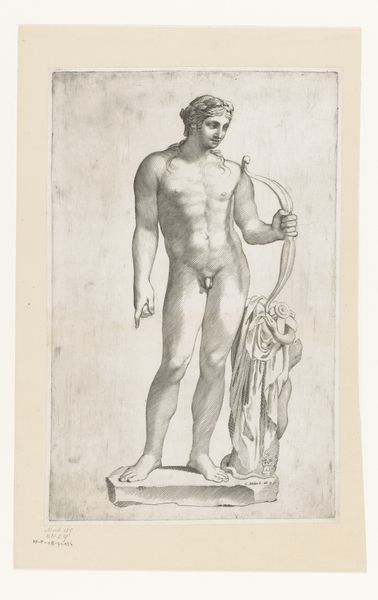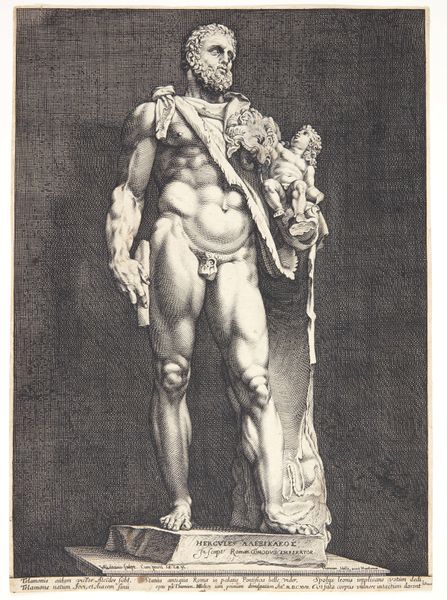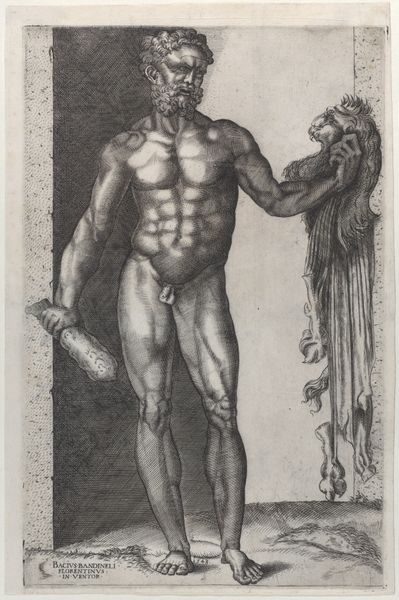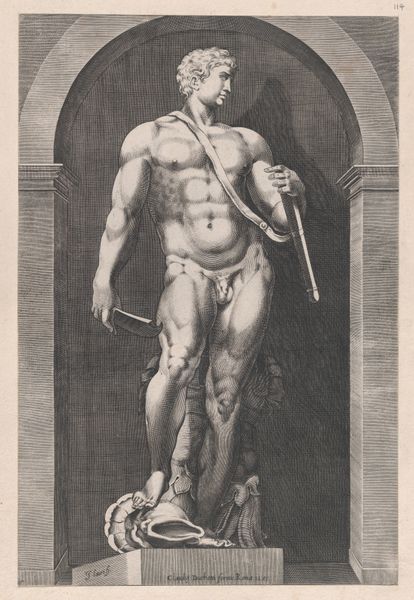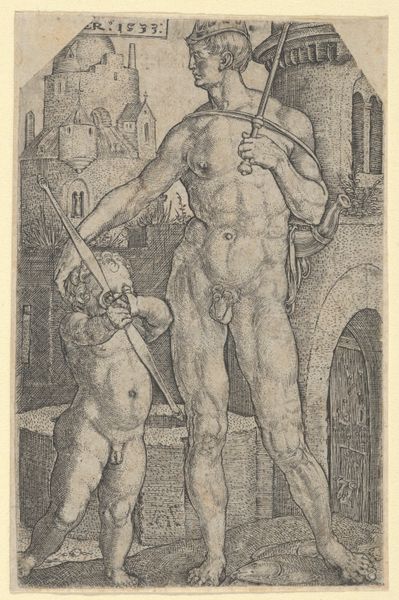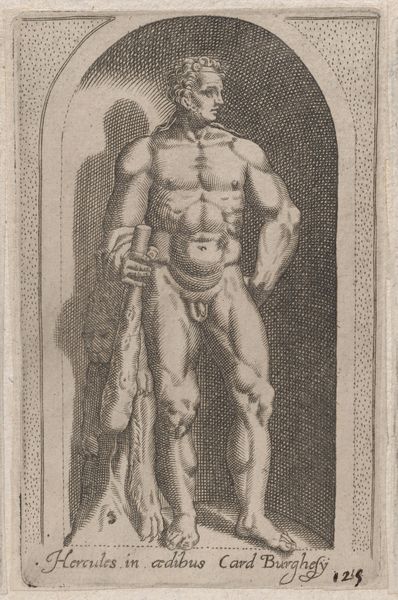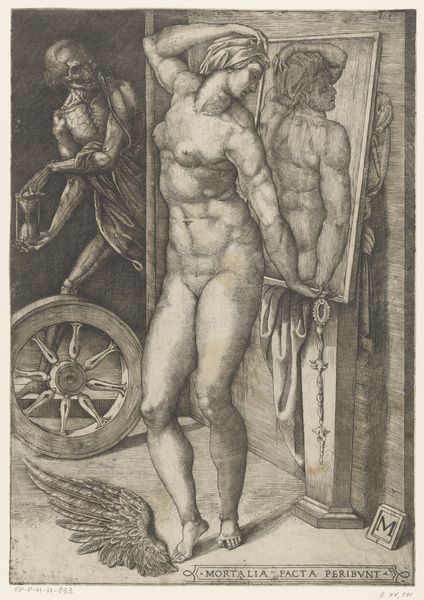
drawing, print, engraving
#
drawing
# print
#
mannerism
#
figuration
#
portrait drawing
#
history-painting
#
italian-renaissance
#
nude
#
italy
#
engraving
#
male-nude
Dimensions: Plate: 13 7/16 × 8 3/4 in. (34.2 × 22.2 cm) Sheet: 13 5/8 × 8 15/16 in. (34.6 × 22.7 cm)
Copyright: Public Domain
This print of the Farnese Hercules was created by Mario Cartaro in the late 16th century. We see the hero Hercules, son of Zeus, resting after his labors, his muscular form a testament to his strength. He leans wearily on his club, draped with the skin of the Nemean lion, a symbol of his triumph over primal forces. This image of the weary hero is a fascinating study in contrasts. The lion skin, a trophy from his first labor, reappears throughout history as a symbol of invincibility. Consider how, in ancient depictions, heroes and gods donned animal skins to manifest their power. Yet here, the skin is not worn in battle but serves as a support, almost a burden. It speaks volumes about the psychological weight of heroism. The Farnese Hercules, known for his exaggerated musculature, embodies a certain pathos, a poignant contemplation of strength tempered by exhaustion. This powerful image evokes a deep, subconscious connection with the viewer, tapping into our shared understanding of struggle and resilience. The cyclical nature of such symbols allows them to resurface, evolve, and take on new meanings in different historical contexts.
Comments
No comments
Be the first to comment and join the conversation on the ultimate creative platform.
